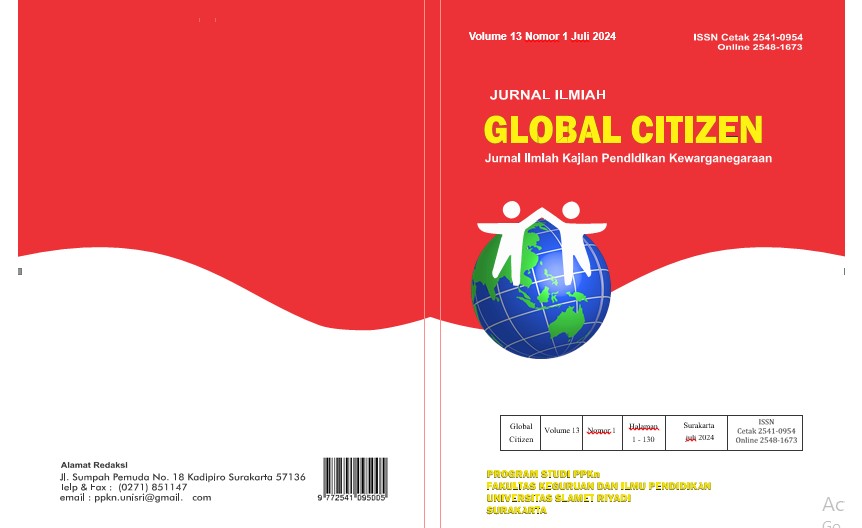PANCASILA AND GOOD GOVERNANCE: STRATEGIES TO STRENGTHEN PUBLIC ACCOUNTABILITY IN THE CONTEXT OF IDENTITY POLITICS
DOI:
https://doi.org/10.33061/jgz.v13i1.10803Abstract
The narratives of identity politics emerging ahead of the 2024 Elections threaten the unity of Indonesia's pluralistic nation. This research explores how Pancasila can reinvigorate the spirit of unity in the face of this unsettling vortex of identity politics. Employing a qualitative approach, the study investigates Pancasila's role as the unifying thread of diversity in bolstering public accountability and good governance. The findings reveal that identity politics jeopardize social stability and public trust in the government. Therefore, strategic steps are needed to implement Pancasila's values, such as transparency, participation, and non-discriminatory law enforcement. Pancasila must serve as the moral foundation for clean, effective, and integrity-based governance in weaving the nation's diversity. This research recommends revitalizing the understanding of Pancasila and integrating good governance principles into government policies. It is expected to guide Indonesia towards dignified progress by uniting to face global challenges. Are you interested in learning more about how Indonesia can embody the spirit of Bhinneka Tunggal Ika amidst the swirling currents of identity politics?
Downloads
Published
How to Cite
Issue
Section
License
Copyright (c) 2024 Adinda Eka Rahayu, Mohammad Afrizal Rizky Setyawan, Sulthonika Mahfudz Al Mujahidin Al Mujahidin, M. Asif Nur Fauzi

This work is licensed under a Creative Commons Attribution-NonCommercial 4.0 International License.
Authors who publish this journal agree to the following terms:
- Authors retain copyright and grant the journal right of first publication with the work simultaneously licensed under a Creative Commons Attribution License that allows others to share the work with an acknowledgement of the work's authorship and initial publication in this journal.
- Authors can separately make additional contractual arrangements for non-exclusive distribution published by the journal (e.g., publish it in a book), with an acknowledgement of its initial publication in this journal.
- Authors are allowed and encouraged to send their work via online (e.g., in the institutional repositories or their website) after published by the journal.
















